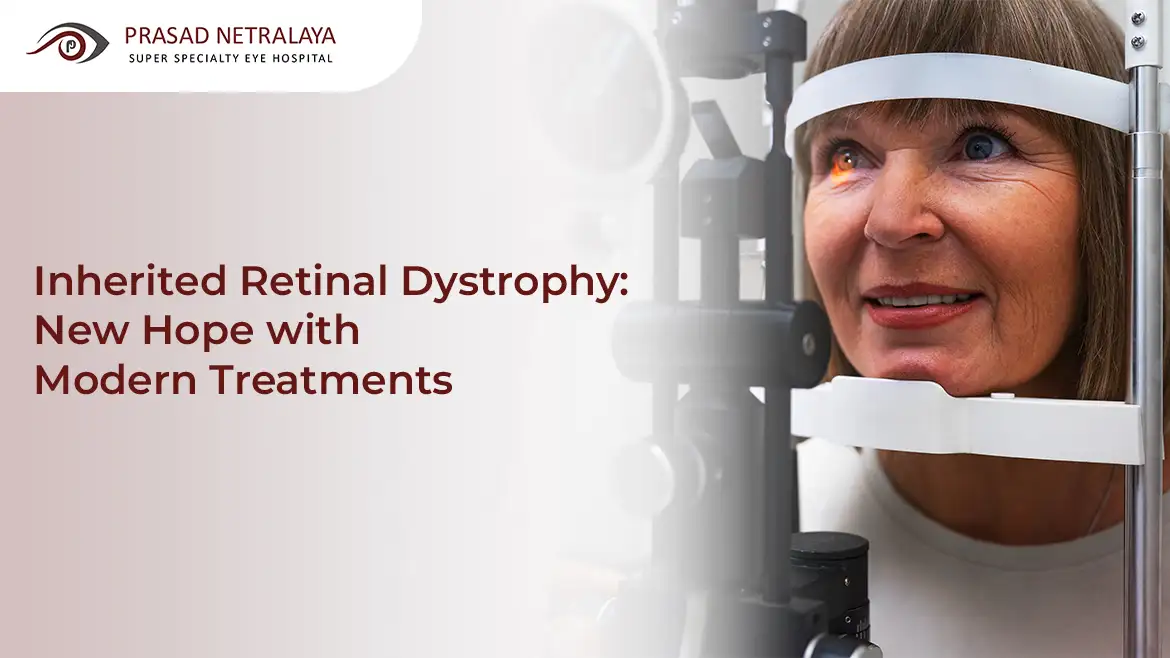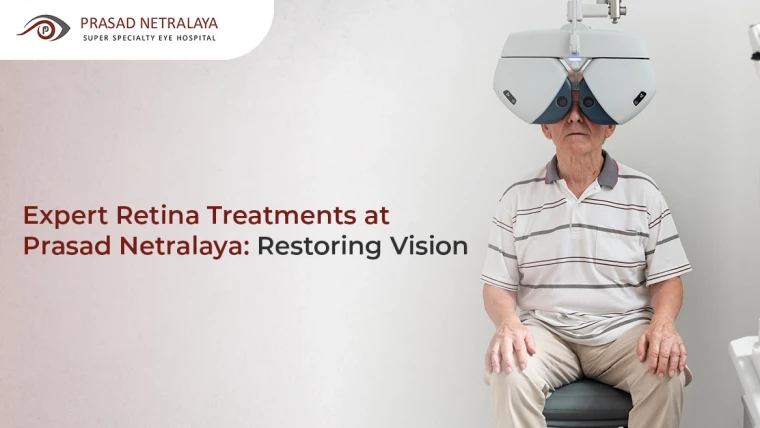Imagine a world where medical innovation brings light back to eyes once thought to face permanent darkness. That’s exactly what today’s advancements in inherited retinal dystrophy treatment are doing—transforming lives and restoring hope for patients who once had limited options.
With cutting-edge technology and the expertise of retinal specialists in India, patients with inherited retinal disorders are now closer than ever to seeing a clearer future.
In this guide, we’ll get down into the details of inherited retinal dystrophy treatment and understand what it brings to the modern eye care world.
First, let’s quickly cover the basics!
Table of Contents
Understanding Inherited Retinal Dystrophy (IRD)
Inherited Retinal Dystrophy (IRD) refers to a group of rare genetic eye disorders that affect the retina—the light-sensitive layer at the back of the eye. These conditions often lead to progressive vision loss, and in severe cases, blindness. Common types include retinitis pigmentosa, Stargardt disease, and Leber congenital amaurosis.
While IRDs were once considered untreatable, medical science has made incredible strides in recent years, giving patients new reasons to be optimistic.
Retinal Dystrophy Treatment Available at Prasad Netralaya
While a complete cure for retinal dystrophy is still on the horizon, remarkable medical advancements now focus on preserving existing vision and slowing retinal damage. These innovative treatments at Prasad Netralaya are giving patients renewed hope and better control over their eye health.
Interestingly, over 270 genes have been identified as contributors to different forms of retinal dystrophy, which explains why symptoms and progression can vary—even among family members carrying the same mutation. This genetic complexity makes personalized care essential for effective treatment outcomes.
Let’s highlight some of the most promising inherited retinal dystrophy treatments offered at Prasad Netralaya:
1. Intravitreal Injections – Protecting Retinal Cells
By delivering medication directly into the eye, intravitreal injections help reduce inflammation and prevent further degeneration of retinal cells. This precise approach ensures that treatment reaches the affected area quickly and effectively.
2. Retinal Prostheses – Merging Medicine and Technology
Retinal prosthetic devices, often called “bionic eyes,” stimulate the retina’s remaining healthy cells. This technology can partially restore vision, allowing patients to perceive shapes, movements, and light—a groundbreaking leap in sight restoration.
3. Gene Therapies – Correcting Vision at Its Source
With modern genetics, treatments can now target the root cause of retinal dystrophy. By introducing healthy gene copies into retinal cells, gene therapy aims to halt or even reverse the disease’s progression, offering unprecedented hope for long-term visual improvement.
Related blog: Expert Retina Treatments at Prasad Netralaya: Restoring Vision.
Role of Retinal Specialists in India
India is emerging as a global hub for retinal specialists offering advanced diagnostics and treatment for IRD. These experts use high-resolution imaging tools, genetic testing, and personalized care plans to identify the exact cause of vision loss. With specialized training and global collaborations, retinal specialists in India are bringing world-class treatment options within reach of Indian patients.
A Brighter Future with Modern Retinal Therapies
Thanks to ongoing research and innovation, modern retinal therapies are rewriting the narrative for inherited retinal diseases. What was once considered irreversible is now treatable—with improved quality of life and visual potential for patients who once had none.
To learn more about the future of retinal therapies, read our guide on: The Future of Eye Health: Advancements in Treating Retina Disorders.
Conclusion
The journey from vision loss to visual recovery is no longer just a dream—it’s becoming a medical reality. With breakthroughs in inherited retinal dystrophy treatment, patients today have more hope than ever before. Thanks to the expertise of retinal specialists in India, innovative therapies and advanced eye care solutions are helping preserve and restore sight for countless individuals.
Among these leading centers of excellence, Prasad Netralaya stands out for its commitment to transforming lives through science and compassion. Equipped with cutting-edge technology and a dedicated team of retinal experts, Prasad Netralaya provides personalized treatment plans—from genetic diagnostics to modern retinal therapies—ensuring every patient receives the best possible care.
Don’t let genetic eye conditions define your future. Consult a trusted retinal specialist today and discover how modern retinal therapies can help you see a brighter, clearer tomorrow.
Frequently Asked Questions (FAQs)
Q1: What is inherited retinal dystrophy, and how is it treated?
Inherited retinal dystrophy is a group of genetic eye disorders that affect the retina, leading to progressive vision loss. Modern treatments include gene therapy, retinal implants, and supportive care to slow disease progression and improve quality of life.
Q2: Can gene therapy cure inherited retinal dystrophy?
Gene therapy has shown promising results in certain types of inherited retinal dystrophies. While it may not fully restore vision for everyone, it can halt or slow the progression, offering new hope to patients.
Q3: Are there any non-surgical options for treatment?
Yes, non-surgical approaches such as nutritional supplements, visual aids, and low-vision rehabilitation can help manage symptoms and enhance daily functioning alongside medical therapies.
Q4: How early should treatment for inherited retinal dystrophy begin?
Early diagnosis is crucial. The sooner treatment begins, especially in children or young adults, the better the chances of preserving vision and slowing the disease progression.
Q5: What advancements are shaping the future of inherited retinal dystrophy treatment?
Emerging treatments like CRISPR-based gene editing, stem cell therapy, and novel retinal implants are transforming care, offering hope for improved vision outcomes in the coming years.
Dr. Vikram Jain, M.S. had his medical training (MBBS) from Kasturba Medical College, Mangalore, India. He did his master’s in Ophthalmic surgery from Kasturba Medical College, Manipal. He currently manages the Glaucoma department of Prasad Netralaya hospital.



